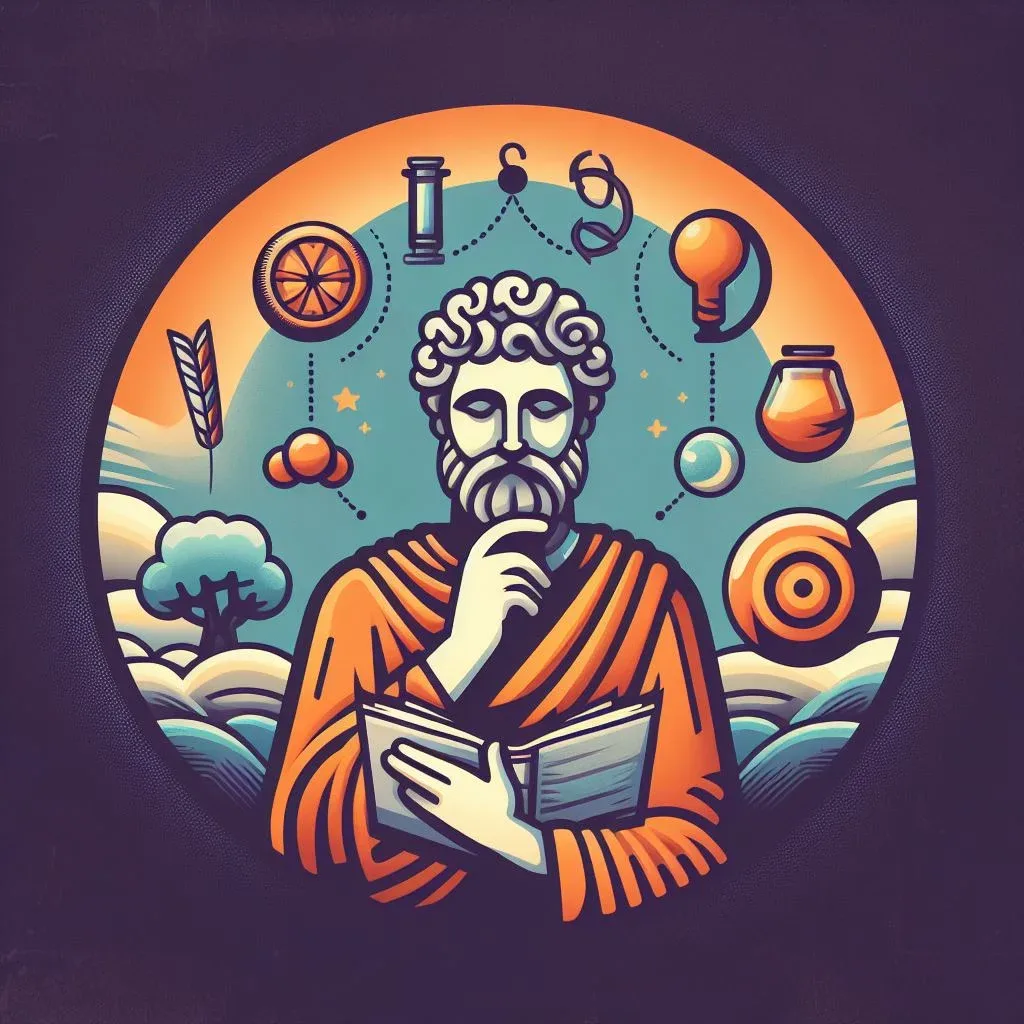Stoicism is an ancient philosophy that flourished in Greece and Rome, and its main idea is a passionate pursuit of virtue and serenity amid the complexities of life. In this blog post, we will explore in detail the central idea of Stoicism, its practical applications and the consequences it has for those who adopt it.

The Main Idea of Stoicism
The central idea of Stoicism can be summarized in one sentence: “Virtue is the only good, and virtue is in accordance with reason.” In other words, Stoics believe that true happiness and well-being are rooted in the constant pursuit of virtue, and that virtue is aligned with reason.

Exploring Virtue
Virtue, for the Stoics, is more than just acting in accordance with ethical standards; it is a deep commitment to moral excellence and self-transformation. Stoic virtues include:
- Courage: The ability to face challenges and difficulties with bravery.
- Justice: The practice of doing what is right and fair regardless of the circumstances.
- Wisdom: The search for knowledge and the application of clear discernment in decision making.
- Self control: The ability to control emotions and desires, acting with moderation.
- Benevolence: The desire to do good to others and contribute to the common good.
These virtues are considered the foundation of a meaningful and happy life.
The Importance of Reason
Reason plays a central role in stoic philosophy. Stoics believe that virtue is not just acting according to a moral code, but also living according to reason. This means that our choices and actions must be guided by logic, the search for truth and a clear understanding of what is right.
Practical Applications of Stoicism

The main idea of Stoicism has countless practical applications that can significantly improve quality of life:
1. Serene Acceptance of What Cannot Be Changed
The Stoics teach that many circumstances are beyond our control, such as the weather, death, and the actions of others. Serenely accepting these realities saves us from unnecessary suffering and allows us to focus our efforts on what we can control: our thoughts, emotions and actions.
2. Emotional Resilience
By cultivating self-control and serenity, the Stoic develops an emotional resilience that helps him face adversity with courage and composure. This leads to greater emotional stability and well-being.
3. Ethical Decision Making
The constant search for virtue drives ethical and moral choices in all areas of life. Stoics are encouraged to act fairly, compassionately, and wisely, even in the face of ethical challenges.
4. Search for Self-Improvement
The central idea of Stoicism motivates the continuous search for self-improvement. Stoics recognize that no one is perfect, but they strive to constantly improve.
Consequences of Applying Stoicism

The application of the main idea of Stoicism has several profound consequences:
- More Meaningful Life: Stoics believe that living in pursuit of virtue and reason leads to a more meaningful and satisfying life.
- Stress Reduction: Serenely accepting what cannot be changed significantly reduces stress and anxiety.
- Greater Respect for Others: The pursuit of virtue leads to greater respect for others and an ethic of care and compassion.
- Composure in Adversity: Stoicism enables us to face challenges with calm and composure, strengthening our resilience.
Conclusion
The main idea of Stoicism, centered on the search for virtue aligned with reason, offers a profound guide to a meaningful and serene life. By calmly accepting what we cannot control, cultivating virtue, and living according to reason, we can find a path to an existence richer in meaning and well-being.
This blog post examined in detail the main idea of Stoicism, its practical applications, and the consequences it has for those who adopt it, highlighting how this philosophy can be a valuable compass for navigating the complexity of life.




